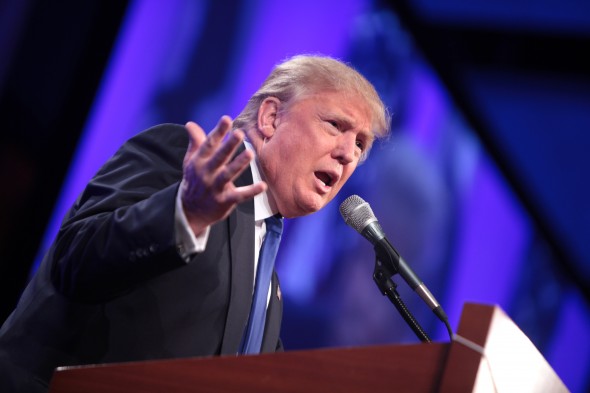With only three weeks remaining until the presidential election, Republican candidate Donald Trump has found a new favorite explanation for why he will likely lose the “rigged” election. On Twitter this past Monday, Trump expanded on his campaign’s previous comments on voter fraud, tweeting: “Of course there is large scale voter fraud happening on and before election day. Why do Republican leaders deny what is going on? So naive!”
“Voter fraud” is a fairly broad term, but Trump has made clear there are three specific types he worries about: widespread voting by undocumented immigrants, multiple voting in cities — in a rally in Colorado Springs, Trump pointed to Philadelphia, St. Louis and Chicago in particular — and the use of votes of deceased individuals. Are these valid concerns?
At a Wisconsin rally Oct. 17, Trump based his claim of widespread voter fraud on two studies in particular. The first, conducted by Pew Research Center, showed “approximately 24 million — one of every eight — voter registrations in the United States are no longer valid or are significantly inaccurate.” Another, posted on the Monkey Cage, The Washington’s Post’s political science blog, cited a study that extrapolated from an online survey that 6.4 percent of non-citizens voted in 2008 and 2.2 percent voted in 2010, proportions high enough to potentially tip close races.
On the surface, both these studies are troubling, and would seem to validate Trump’s claim. But upon further examination, neither of them lend credibility to claims of widespread voter fraud. In the Pew Research Center study, the authors failed to find any evidence of voter registration errors actually leading to coordinated, widespread voter fraud.
The study posted on the Monkey Cage is particularly troublesome because it seems to support the idea that non-citizens (which one could assume includes many undocumented immigrants) have had and could continue to have a large impact on the election. But here, many scholars doubt the authenticity of the results that come from an online survey due to its “modest sample size.” Even the authors of the study cited major methodological concerns about their work.
How often does voter fraud really occur? One of the most comprehensive studies, conducted by University of Loyola, Los Angeles Law School professor Justin Levitt, found just 31 credible cases of voter fraud over all primary and general elections taking place between 2000 and 2014. Drawing from elections at all levels of government, Levitt’s study includes more than one billion ballots.
To claim that voter fraud exists on a scale large enough to determine an election would be, as Ohio Gov. John Kasich put it, “like saying we never landed on the moon, frankly.” Coordination on the scale to record thousands of fraudulent votes in a particular state is not possible.
Trump’s claims are beyond just inaccurate; They are incredibly dangerous. In the short term, Trump’s insistence that everyday citizens should monitor polling places raises concerns about voter intimidation, especially in the primarily Democratic cities where he alleges fraud occurs. If violence results at polling stations as Trump vigilantes confront voters, Trump will share a great deal of the blame.
In the long-term, Trump’s insinuation that voter fraud will cost him this election erodes the very basis of American government: that elections are free and fair. If Trump was the real winner of the election, should his supporters believe the election was rigged against Clinton?
It seems as if the reality of his impending loss has finally started to hit Trump, and he will attack anyone and anything he can in his attempt to win. Over the past several months his criticisms have moved from individuals (Senators John McCain and Marco Rubio), to groups of people (women, undocumented immigrants, Muslims), and now to the very basis of democratic government. Trump’s rhetoric on the voting system is wrong and dangerous, and his supporters should realize the outcome of the election will ultimately be a result of just how low Trump has sunk in trying to win.
Sam Wallace is a public policy graduate student. He can be reached at samhwallace@gmail.com.



